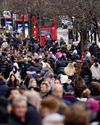
On 30 November, an Arbitral Tribunal in the United Kingdom ruled that Fifa would not be able to impose a cap on agent commissions for football transfers in the territory. The decision immediately freed the various agencies to start consulting with clubs on January plans knowing what budgets they could work within, and have forced the global governing body “back to the drawing board”.
Potential alternatives, like limiting the number of possible transfers, strengthening homegrown player rules to spread talent and even salary caps have since been floated but all ideas are naturally at a very early stage. Fifa would argue this reflects how the impetus behind the agent reforms was simply to control transfer spending to improve competitive balance in the sport. In other words, to ensure it is less dictated by money and more teams stand a chance of winning.
The logic behind that was that the current agent industry incentivises transfer money, which further concentrates talent at the wealthiest clubs, increasing financial disparity. One of the examples put forward is that, if Erling Haaland or Kylian Mbappe were to move, the agent fees would cost £50m. Only five clubs in the world could feasibly afford that. That, they argued, is why caps on commissions are essential. Fifa have since released figures that show a 42.5 per cent increase in agent service fees from 2022 to 2023, at $888.1m, with the commissions surpassing $1m in the women’s game for the first time.
This story is from the {{IssueName}} edition of {{MagazineName}}.
Start your 7-day Magzter GOLD free trial to access thousands of curated premium stories, and 9,000+ magazines and newspapers.
Already a subscriber ? Sign In
This story is from the {{IssueName}} edition of {{MagazineName}}.
Start your 7-day Magzter GOLD free trial to access thousands of curated premium stories, and 9,000+ magazines and newspapers.
Already a subscriber? Sign In

Old-school Dubois set on inheriting Taylor's throne
Caroline Dubois is unbeaten in 10 fights, has barely lost a round, she is the world champion, and nobody wants to fight her.

Forest canter past Wolves to continue unbeaten run
Nottingham Forest opened the door to a surprise Premier League title challenge after a sixth win in a row with a 3-0 victory at Wolves.

Life after Moyes a mess for incoherent Hammers side
As West Ham were defeated, they got a glimpse of what they have lost. David Moyes was at the Etihad Stadium, the scene of his last game as their manager. West Ham were beaten then, just as they were in Julen Lopetegui's latest match in charge.

Lessons learnt by United or just one more false dawn?
For large parts of his Manchester United career, Bruno Fernandes has appeared the answer. Now he posed the question.

From recession to rate cuts: 2025 economic predictions
I usually feel queasy when writing predictions for the year ahead.

London exchange exodus is a sign of US dominance
Last year saw the biggest outflow of companies from the London Stock Exchange since the global financial crisis. According to accountants EY, 88 companies, including Paddy Power owner Flutter, travel group Tui and Just Eat, abandoned the London market for US and European exchanges.

New blow as retailers warn of price hikes and job cuts
Keir Starmer faces a fresh Budget headache as retailers warn of higher prices and job cuts following disappointing sales in the crucial Christmas \"golden quarter\".

TALKING TRASH
From KKK brawls to the infamous man who married a horse’ episode, a new Netflix documentary delves into the story of The Jerry Springer Show’. Louis Chilton finds out more

Why the latest social media vogue is a fridge too far
Thought wall-to-wall beige and displaying books the wrong way round was bad? They’ve got nothing on fridgescaping’, the most unhinged Instagram trend yet, writes Helen Coffey

Drill, baby, drill': Big Oil is coming after electric vehicles
Have you ever gone back over your new year's resolutions from years ago and just thought, \"What was I thinking?\" Over the last year, it seems that Europe's biggest oil corporations did just that.